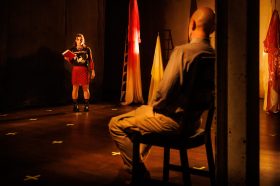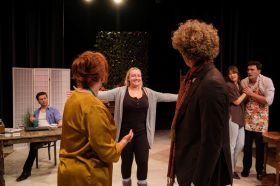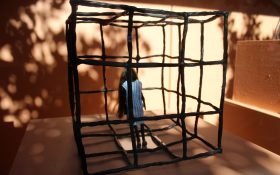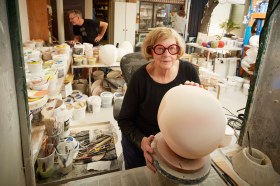When I quit being a lawyer to “do something creative”, my boss – a young partner in the firm who had spent two years prescribing hard labour in an attempt to remove every creative impulse I had – gave me some advice. “Good luck with it all,” he said, smiling as he shook my hand. “Just don’t expect to eat.”
At the time I thought he was exaggerating. I knew I would no longer be assured the same golden stream of income that would come my way if I kept up my miserable existence as a solicitor, but surely it couldn’t be that bad. There were millions, no billions, of people in the world who didn’t practise law (although that number continues to get smaller every day) and they all find a way to put bread on the table. Sure, it might be sliced white instead of Baker and Spice sourdough, but if that’s all it took, I could do it.
The reason this column has been delayed for some time now is that, quite simply, for the last couple of months I have been working ridiculous hours, attempting to earn enough money to compensate for the lack of income that came my way while I wrote the latest draft of my novel. Money which I need to cover the debt I have acquired for middle class things, like holidays and clothes and the rent on a non-communal house, and Baker and Spice sourdough.
I’d like to be able to do the Bohemian thing, and devote my attention full-time to the pursuit of art. But I just can’t. Sure, I really, really want to finish this damned book and make it the best damned book I can, but the level of sacrifice I am willing to make to get it that way stops well short of, say George Orwell, who lived both as a penniless bum and a plongeur for several months before writing Down and Out in Paris and London.
I think the truth is that most writers draw the line somewhere close to where I have marked mine: the house, the children, the tasty food, are what makes a life worth living, and sometimes your own need to write has to take a backseat in order to get them. Even someone as tortured as Virginia Woolf recognised it when she said that the two ingredients to being a novelist were money and a room of one’s own.
Really, Virginia hits the nail on the head. Throughout most of history, those creating the great works have more-or-less been the ones with the time and money to be able to create the great works. Oscar Wilde might have died beyond his means, but the reality was that he came from a very privileged position in society, where living beyond your means could only be achieved through single-minded devotion to the kind of ridiculous excess that Oscar indulged in. In an age where there is no longer much of a class of people who do nothing and are served by a seething mass of people who slog their guts out, the kind of life most great novelists had is no longer possible.
Let’s get this bit clear: without even a first novel to my name I am in no way comparing the fruits of my labour to those of Oscar Wilde. But like anyone else who wants to be a writer but refuses to live on the smell of an oil rag, I have spent the last couple of months doing very uninteresting things: wading through precedents, editing intolerably boring pieces on the intricacies of contract law, and hating every minute of my working life.
But no matter how mind-numbing it is, it’s a necessary evil, and one that these days no one in the arts can escape. Given the aforementioned social structure that was necessary for the previous state of affairs that’s no doubt a good thing. Besides, the pain of the work we all have to do to get by, makes us realise what wonderful indulgence writing is – and just how lucky we are to have the chance to do anything at all, instead of being down pit for eighty hours a week like our grandfathers. And even if that’s not enough to get me through it (and at times it isn’t), there’s one thing that always does the trick: I just remember that before he became one of the greatest novelists ever to live, Kafka sold insurance.




